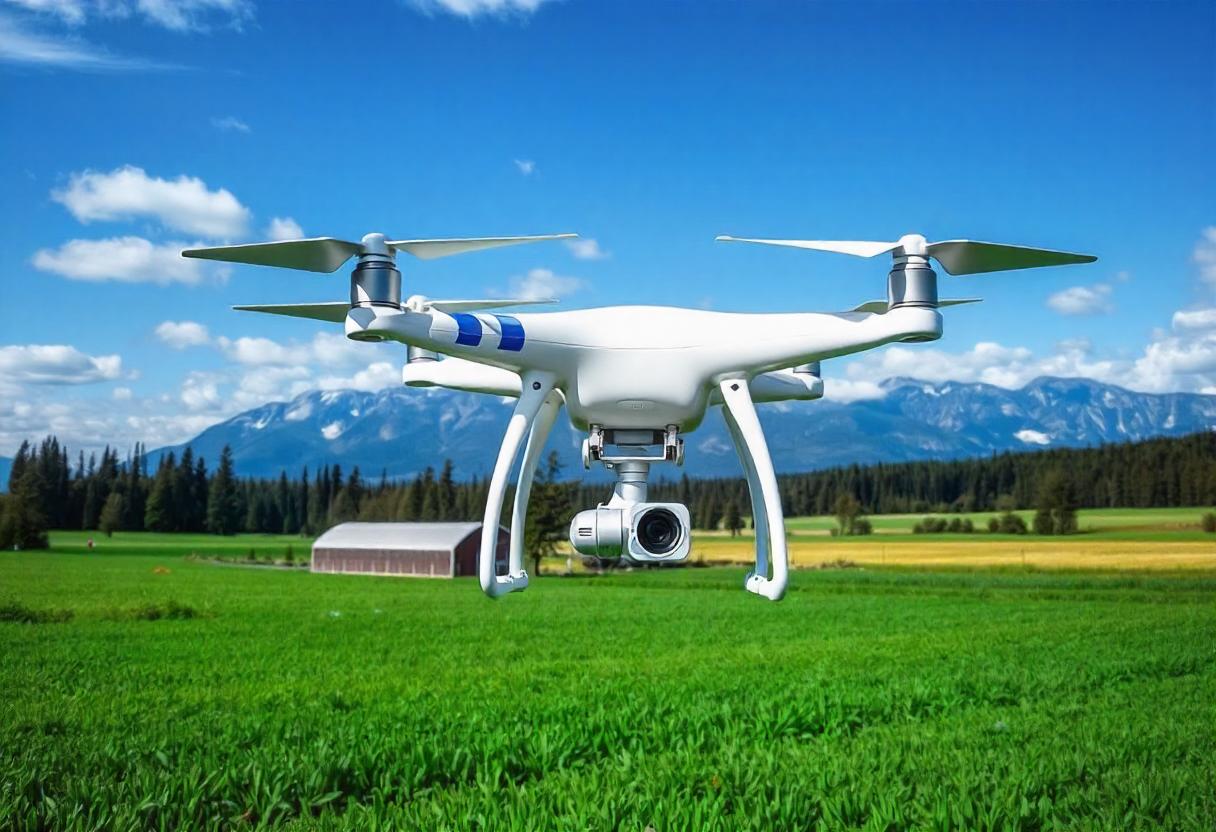
In recent years, agriculture drones have become a transformative tool in Canada’s farming sector. These drones offer precision farming techniques, allowing farmers to optimize resources, improve crop yields, and monitor agricultural processes more efficiently. As Canada’s vast agricultural landscape spans a variety of terrains and climate zones, drones have proven to be essential for tailoring farming practices to specific conditions.
Role of Drones in Precision Agriculture
Precision agriculture is a farming management concept that uses technology to observe, measure, and respond to field variability. Drones play a critical role in this by providing high-resolution aerial imagery that allows farmers to assess plant health, monitor crop conditions, and make data-driven decisions. In Canada, precision agriculture has gained momentum as farmers seek to maximize yields while minimizing waste and environmental impact. Drones help monitor large swaths of farmland, identify irrigation issues, and detect diseases early on.
Benefits of Using Drones for Canadian Farmers
Drones offer several advantages for Canadian farmers. One of the primary benefits is cost efficiency. By using drones, farmers can reduce the need for manual labor and heavy machinery, particularly in large and remote areas. Drones also provide real-time data, allowing farmers to respond quickly to any issues, such as pest infestations or water shortages.
Additionally, drones can enhance sustainability in farming practices. By accurately measuring the amount of water, fertilizer, and pesticides required, drones reduce unnecessary application, which leads to lower environmental impacts and cost savings.
Applications of Drones in Canadian Agriculture
- Crop Monitoring: Drones equipped with multispectral sensors can monitor crops throughout the growing season. In Canada, where conditions can vary significantly from one region to another, drones help ensure that crops receive the right amount of care at the right time.
- Soil and Field Analysis: Before planting, drones can generate detailed 3D maps of fields, helping farmers understand soil conditions and plan their planting strategies accordingly. This is particularly useful in areas with challenging terrain or diverse soil compositions.
- Livestock Management: In addition to crop farming, drones are used in livestock management across Canada. Farmers can monitor herd movements, assess grazing patterns, and even detect health issues among livestock from a distance.
Challenges and Regulations
While the adoption of agriculture drones in Canada is increasing, there are challenges that farmers face. One major hurdle is the regulatory framework surrounding drone usage. In Canada, drone operators must comply with Transport Canada regulations, which dictate where and how drones can be flown. This includes restrictions on flying near airports, populated areas, and certain altitudes. Farmers must ensure that they are operating drones within the legal framework to avoid penalties.
Another challenge is the initial investment. Although drones can save costs in the long run, the upfront expense of purchasing, maintaining, and training staff to use them can be a barrier for smaller farms. However, with technological advancements and increasing competition among manufacturers, the price of drones is gradually becoming more accessible.
Future of Agriculture Drones in Canada
The future of agriculture drones in Canada looks promising. As technology continues to evolve, drones are expected to become even more integrated into everyday farming practices. Advancements in artificial intelligence, machine learning, and data analytics will allow drones to provide more accurate predictions and automate certain farming tasks.
The use of drones in Canada’s agriculture sector is not just a trend but a long-term strategy for increasing productivity and sustainability. Farmers are likely to see continued innovation in drone technology, with improvements in battery life, sensor capabilities, and ease of use.